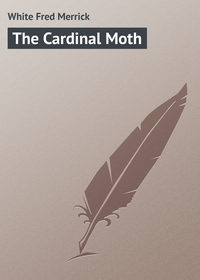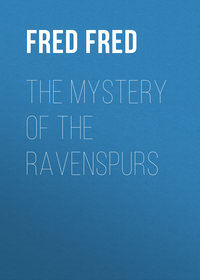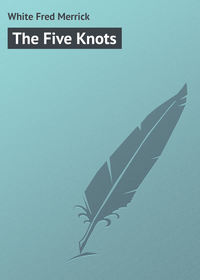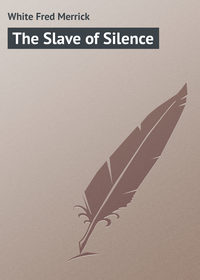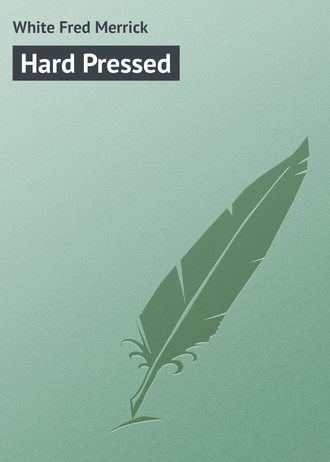 полная версия
полная версияHard Pressed
"I was looking for you," the latter said. "I haven't been letting the grass grow under my feet since we met last. I am beginning to get a hold of the game. We shall be able to make those fellows sit up before long. I suppose you couldn't manage to get away on Friday and Saturday next for the two days' racing at Mirst Park? If you can, I shall show you something that will open your eyes."
"As it happens," Fielden explained, "I am going there. I have just been appointed a kind of general manager to Mr. Copley. I have to thank Sir George Haredale for this. As you can imagine, Phillips, it is not a congenial occupation. But there are urgent reasons why I ought to accept it. We have a horse or two entered for the Mirst Park meeting, and I shall go with them. Now, then, what is it?"
Aaron Phillips' face lightened.
"What a stroke of luck!" he exclaimed. "In that case, I need not detain you now. But I'll contrive to see you on the course, and then I think it will be our turn."
CHAPTER XII
A LION IN THE PATH
COPLEY did not appear to be so busy as he had professed when he dismissed Fielden so unceremoniously. He lighted a fresh cigar and sat down moodily over a mass of accounts. He pushed these aside presently, and took up a copy of the Sportsman, which he proceeded to read with a perplexed frown on his moody face.
"I cannot for the life of me understand it," he muttered. "The trial was fair and square, and I see no reason why the boy's information was not to be relied upon. But that colt is more firmly established in the betting than ever. I can't recollect anything like it. It seemed a dead sure thing to lay that money against the horse. And, yet, though I laid over ten thousand pounds against him, in this morning's paper he is at a shorter price than before. Well, if the public like to be such fools, it's their look-out, not mine. Still, it's unpleasant. I wonder if Foster has learnt anything this morning."
Foster came in a moment or two later. His usual smile had deserted him, and he looked troubled and anxious.
"I wanted to see you," said Copley. "I can't for the life of me understand this betting. Here's the Blenheim colt backed for a ton of money again. Why, in the face of the commission we have put on the market, he ought to be fairly knocked out."
"Oh, I've seen it," Foster replied. "I've sent for the boy. I wonder if that young rascal played us false. But, no, I don't think he would dare do that. Besides, he stands to win a pot of money himself. At any rate, I have sent for him, and if there was anything about the trial that was not fair we shall know it in half an hour."
For the next hour or so the two conspirators sat discussing the matter. Then there came to them a diminutive youth, shrunken and clean-shaven, with the air of one who has passed all his life in the atmosphere of a stable. His little wizened face was white with agitation, and he stood, with his eyes cast to the ground, waiting for Copley to speak.
"What is it?" the latter asked roughly.
"I don't know, sir," the boy said humbly. "I don't know how it was done. Ah, that there Raffle is a deep 'un. I made sure as the trial the other morning was all open and above board, and now I find as how it wasn't the Blenheim colt we saw at all. It is no use asking me to explain, gentlemen, and it is no use bullying me, for the more you do that the more muddled I get. It is only a word or two I 'eard between Raffle and the 'ead lad that put me on the scent. We've got two or three 'osses in the stable as like the Blenheim colt as two peas. They are nearly all the same blood, you know. What old Raffle is a-driving at, I dunno. But it looks as if one colt was changed for another at the last moment, and nobody would have been any the wiser if I hadn't 'eard that little conversation this blessed morning."
Copley and Foster exchanged glances. It was no use to scarify the boy, for the conspiracy was none of his making, and he was obviously telling the truth; indeed, he had been well paid to bring information to Copley and had nothing to gain by further deception. But what was the meaning of it all? Why had Raffle chosen to bring off a mock trial? So far as Copley knew, Raffle had no reason to suspect the honesty of the stable boy. He could not know that he was in Copley's pay, nor could he have known, either, that Copley and Foster would witness that early morning trial. Could it be that there was some one else in the field whom Raffle wished to deceive? At any rate, whether that was so or not, Joe Raffle had put both Copley and his accomplice in a hole. After witnessing the trial they had laid against the colt to an enormous amount, and, after all, Sir George Haredale's horse might win the Derby. They dismissed the boy with strict injunctions to keep his eyes open and let them know the latest developments. Then they talked the matter over to see if they could find some way out of the trouble.
"It's a bit of a facer," Copley muttered. "I am bound to confess I never expected anything like this. I wonder what that old fox Raffle was driving at? Whom is he trying to deceive? I'd give something to know."
"What does it matter?" Foster asked impatiently. "Wilfully or not, he has deceived us. As I figure it out, we stand to lose something like five thousand pounds. If that horse starts fit and well for the Derby we shall be in a rare mess. And there's nothing to beat the colt. It would be maddening to be done at the beginning of the season. Fancy having to upset all our plans because of a misfortune like this!"
"Unless we could stop the colt," Copley suggested.
Foster looked keenly across the table at his companion.
"That's not a bad idea," he said thoughtfully. "If the Blenheim colt lost the Derby we should win ten thousand pounds at least. At the price the horse stands in the betting to-day, we could lay another twenty thousand pounds without knocking him altogether out of the betting. I don't call to mind a case in which the public have been more infatuated about a horse. Why, our commission never shook him at all. Suppose, without anybody knowing it, we could guarantee that the horse didn't start. In that case, we could lay a hundred thousand pounds against him, with the absolute knowledge that it would be only a question of time before we scooped up the money. Our Mirst Park scheme is a mere fleabite to it."
Copley's sombre eyes lighted a little.
"Yes, if we could only do it," he sneered. "But the age for that game is past. There is no chance of hocussing a horse, or laming him, or bribing a stable boy, or squaring a jockey. That was all very well in the old days, when meetings were few and far between, and we hadn't got an enlightened Press that watches everything as a cat watches a mouse. It's no use wasting time over idle dreams of that sort, Foster. Poor as he is, Sir George wouldn't even hear of such a thing."
"Think not?" Foster asked. "Well, I believe myself that every man has his price. I have never found anything to the contrary. I thought you were a fool to come down here at all. I thought you were a fool to allow yourself to be fascinated by that girl, but now I begin to see a way of turning it to account. I don't suppose she'll marry you. I never thought she would."
The big veins on Copley's temples thickened.
"Stow that," he said hoarsely. "You are going too far. I'll not listen to a word of it. It is no business of yours. If you have anything good to suggest, I shall be glad to listen to it, but I'll thank you to leave Miss Haredale's name out of the discussion."
"Oh, very well," Foster said sulkily. "But, in this case, one thing leads to another. To gain Miss Haredale you found money for her father when we could have done with it ourselves – indeed, we wanted it pretty badly. Now is your chance to get it back, and more. Sir George can't pay you. He could as easily repay a million. He will find, too, that it is impossible to coerce Miss Haredale into marrying you. Don't get wild. I don't want to introduce the young lady's name more than I can help, but I am bound to speak of her. You will find that she will hold out to the end, and that, if need be, she won't object to leaving Haredale Park. But Sir George will cut up rough when the time comes. He is chockful of family pride. He is the sort of chap who is wedded to the family home, and when the pinch comes you'll find him ready for anything. Of course, he will make a fuss. He will ask you how you dare suggest such a thing to him, but it will come right in the end."
Copley glanced contemptuously at the speaker.
"What are you talking about?" he exclaimed. "What are you driving at? Do you take Sir George for an utter fool? Do you suppose that he is likely to scratch a horse he has backed to win or lose everything he has?"
"Well, why not? He backed the colt at a very long price, and I don't suppose he has put down more than a thousand altogether. On the other hand, he owes you at least forty. Suppose you ask him to pay that back at once. Suppose you let him know that if he doesn't you will turn him out of his house a mere beggar. Suppose, if he consent, you offer to wipe out his debt and give him, say ten thousand pounds, the day after the colt is scratched. You needn't do it now; you can wait a month. Then you can put the screw on at once. He'll kick, jib, order you out of the house, but he will knuckle under in the long run. If he doesn't, then I'm a fool and know nothing about human nature. Why, the thing is so easy and perfectly safe not a soul will know anything about it. The colt pulls up lame one day at exercise, he is reported to be coughing, and before the fools who back horses know what has happened the pen has been put through the name of the favourite. You've got the game entirely in your hands. Then we can get our commissions out all over the country and make a fortune without a penn'orth of risk. By Jove! it makes me tremble only to think of it. If the thing is properly worked, we should divide half a million between us. Now, what have you got to say to that? Doesn't it sound right?"
Copley brought his fist down upon the table.
"By gad," he exclaimed, "I'll do it, Foster!"
CHAPTER XIII
"AN OFFICER AND A GENTLEMAN"
AS most people are aware, the camp-followers of the turf are a large body whose ways of earning a living are, to say the least of it, peculiar. This noble army numbers folk of all kinds, from the member of a swagger West End club to the humble seller of cards on the various courses. Amongst these, in his place, came Aaron Phillips. If he had been asked, he would probably have said that he was a professional backer of horses, a description which covers a wide field and embraces many methods of getting a living – more or less honestly.
In all likelihood Phillips would have resented the imputation that he was not a sportsman, and have declared emphatically that he was nothing else. He had been connected with racing ever since he could recollect, but had never been across a horse in his life, and would have found it impossible to pick out the good points of an animal. But he was fond of horses in his way. He had heard them talked about for years, and most of the frequenters of his father's public-house were either followers of racing or indirectly mixed up with the "sport of kings." He had been born, too, in the vicinity of a classic course and had always taken the greatest interest in the dramatic side of the turf. There was not an ingenious swindle but he had the details of it by heart.
For some years before his departure for South Africa he had followed racing from one course to another. Though he had never done anything deliberately dishonest, he was up to every dodge, always seemed to have money in his pocket, and was invariably well dressed. The fact that his mother had belonged to one of the leading Romany tribes Phillips found greatly to his advantage. He was never above passing the time of day with such nomads as he encountered, and more than once had benefited by this politeness. Had he ever wanted a useful and faithful tool, something uncommonly smart in the way of a human ferret, he knew where to put his hand on such a person. Strange as it may seem, there was never a great fraud connected with the turf that was not freely whispered amongst its humble followers long before it reached the ears of the authorities. More than once Phillips had listened to the outline of a story which would have astonished the magnates of the Jockey Club if they could have heard it. And it was by such means that he had managed to pick up the threads of a plot which, before long, seemed likely to promise sensational disclosures. It was an additional satisfaction to Phillips to know that the main persons in this plot were his old enemies Raymond Copley and Foster. He had followed up the clues in his patient way, and at last had something really definite to go upon.
It might be inferred that Phillips already had these two in the hollow of his hand. But he had learnt patience in the hard school of adversity, and had no intention of throwing away the chance of making money for the mere sake of revenge. At any moment he might have pricked the glittering bubble which Copley had blown, and laid both scoundrels by the heels in gaol, but that would have entailed loss of time and a considerable sojourn in South Africa, without any material return beyond that of triumph over his enemies. Now he was beginning to see a way to crush both Copley and Foster, and fill his own pockets at the same time.
He was not without his peculiar code of honour. Harry Fielden had defended him at one time and he was not going to forget it. Fielden would have been astonished to learn how much Phillips knew about his affairs. He knew, for instance, all about May Haredale. He knew that Copley was infatuated with the girl and was prepared to go any lengths to make her his wife. He knew too, pretty well what was in old Raffle's mind, and chuckled as he thought of it. And now the time had come to fire the first shot.
He turned out of his lodgings on a sunny Friday in February, and made his way to Russell Square. He was more carefully dressed than usual and wore a dark, quiet-looking suit, with a grey overcoat and felt hat. His gloves were neat, his boots well polished, and, save the horseshoe pin in his white cravat, there was no suggestion of the racing man about him. He turned presently into Kelly Street, and, knocking at the door of a certain house, asked for Major Carden. The Major, he was informed, was just finishing breakfast, but would see Mr. Phillips.
It was the usual room in a lodging-house – shabby Axminster carpet, dingy horsehair furniture, with the inevitable lustres on the mantelpiece. The tablecloth was none too clean, though on it was a vase or two of flowers, tastefully arranged. At one end of the table sat a stout pink-faced person with a carefully-trimmed grey moustache. He was a typical specimen of the retired military man, bluff and hearty in manner, with a pair of faded grey eyes faintly tinged with pink. Evidently, too, he had been accustomed to mix with the best people, as he would have phrased it himself. Probably, he still belonged to a good club, and no doubt found it exceedingly difficult to make both ends meet.
The second person at the breakfast table was an exceedingly pretty girl, who looked none the less refined and attractive because her black dress was of the plainest. She was chattering gaily as Phillips came in. She appeared to have a proper respect and affection for her father, whose words she seemed to hang upon. The Major looked up from the table and nodded genially.
"You are punctual, Phillips," he said. "I am afraid I am a little late this morning. Alice, my dear, this is Mr. Phillips. He is the distinguished journalist I was telling you about last night. We are both connected with the same papers."
As the Major spoke, he winked swiftly at Phillips, and the latter smiled. What the Major was driving at he hadn't the remotest idea.
"Oh, yes," he murmured. "The Major and I are old friends."
The girl smiled pleasantly. She appeared a trifle shy, and gave Phillips the impression that she had no friends, and that her young life was, for the most part, a constant sacrifice for her selfish and dissipated father. She rose presently, and with an excuse left the two men together. Immediately she was gone the Major crossed the room and produced a bottle of brandy, from which he helped himself liberally. Phillips curtly refused.
"I met some old friends last night," the Major said. "I am afraid I was just a little – well, you know how it is."
"I do," Phillips said shortly. "But what did you tell that lie for? What have we got to do with journalism?"
"My dear sir, there are times when one must dissemble. I know I am a bit of an old scamp, but, you see, my daughter doesn't know it. I wouldn't for worlds like her to know the life I am leading. She is a good girl and believes in me, and I have managed to give her a fine education. She is the only thing I have in the world to care for. She is the only thing that has kept me from going headlong to the dogs. I daresay when I am done with, some of my relations will look after her. Meanwhile, they take precious good care to keep me at arm's length. I don't blame them, either. I hit upon the journalistic dodge to account for my late hours. I was afraid you might give me away. I am bound to tell you this, and I hope you will respect my confidence. Well, now, what do you want me for? Sit down a minute."
"I have come to put a little money in your way," Phillips replied. "I gave you a hint of what I was after the night before last. They tell me you are a member of the Post Club."
"Oh, yes," Carden replied. "I have managed, somehow or other, to keep myself on the club books. Not that I go to the Post very much, because I can't afford it. If I meet a young friend occasionally who is anxious to see life, I take him there to lunch, on the strict understanding, of course, that he repays me."
"Then I want you to take me there. I would like to lunch there to-day, and I wish you to introduce me to Mr. Rickerby, the commission agent. It is a very simple matter. If you can bring this about and get me half an hour's conversation with Rickerby after lunch, I'll give you a tenner and pay for the lunch besides. There's no risk and no responsibility as far as you are concerned."
The Major pondered the matter.
"What are you up to?" he asked presently.
"That," Phillips said, "is no business of yours. But I assure you that I am up to nothing wrong. Nothing I can say or do will get you into trouble. I don't mind telling you there is a big swindle on foot to rob the leading bookmakers and commission agents and I am trying to expose it. If I do, there will be a good round sum of money for me, and if I fail, I shall be none the worse off. Now, are you game?"
The Major smiled. At that moment ten-pound notes were scarce, and Phillips' offer came in the nature of a windfall. But it was not part of his diplomacy to accept the suggestion too eagerly.
"I think so," he said. "I don't see why I shouldn't accommodate you. Perhaps, later, you might have something else to put in my way."
"Very well, then," Phillips replied. "I need not detain you now. I'll meet you at the club at half-past one."
CHAPTER XIV
THE POST CLUB
THERE are several smart betting clubs in London, but none smarter or more up-to-date than the Post Club. Like most institutions of the kind, it is somewhat mixed and largely devoted to the purposes of gambling. All sorts and conditions of men can be met there, from the magnates of the turf down to small bookmakers. At the same time the subscription is a heavy one and the entrance fee large. It is so large, indeed, that the police have never been bold enough to raid the club, which is conducted on the best principles. Betting on the tape goes on to an enormous extent, and there on most afternoons of the racing season nearly all the chief commission agents can be found. The club premises consist of a billiard-room, dining-room, and smoking-room, the last fitted with several tape machines, which bring the result of the day's racing directly from the course. Great wagers are constantly being made and sometimes enormous bets effected even after the horses have been dispatched by the starter.
Till after lunch the club is very quiet as a rule. On the first day of the Mirst Park Meeting not more than half a dozen racing men were in the dining-room. At a little table near the door sat the Major and his guest, discussing a dainty luncheon to the accompaniment of a choice brand of champagne. The Major was beaming. This was a pastime after his own heart, and seeing that the luncheon was costing him nothing he was doing the thing very lavishly indeed. There was something almost regal in the way he spoke to the waiters. His manner was bland and florid, and, beyond all was the consciousness of the five-pound note in his pocket which Phillips had given him to pay for the repast. They sat for some little time, when the door was flung violently open and a large man in an impossible waistcoat came into the dining-room.
Full-bodied and scarlet, he had an air of prosperity and in an aggressive way suggested money. Most persons in the sporting world were familiar with that huge personage in the striking waistcoat, for it was none other than Mr. Rickerby, of a firm of turf accountants, who advertised that they recognized no limit. In early life Mr. Rickerby, or Rick, as his friends styled him, had been a butcher. He had failed at that principally because he spent most of his time backing horses or arranging prize-fights. After he had passed through the Bankruptcy Court he began with a small silver book and, having a real genius for figures, together with a striking presence, an enormous voice and amazing audacity which amounted almost to simplicity, he soon made headway in his new profession. In a short time he took a partner who had been a smart accountant, and now had a suite of palatial offices in the Strand, where he kept a large staff of clerks, and where telephone messages were pouring in almost day and night. Rickerby was a leviathan, and though he by no means despised the small fish that came into his net, revelled in big bets and dramatic wagers.
He nodded to the Major with a mixture of insolent familiarity and fawning politeness. Occasionally the Major was of use to him. Besides, Carden was well connected and Mr. Rickerby had a profound admiration for the aristocracy. He would have passed on only, at a sign from Phillips, Carden detained him.
"Come and lunch with us, Rickerby," he said. "Try this new brand of champagne. Waiter, lay a place for Mr. Rickerby. Bring another bottle. No, on second thoughts, you had better bring a magnum. Rickerby, let me introduce my friend Mr. Phillips. He is just home from the Cape."
Rickerby touched an imaginary forelock.
"Proud to make your acquaintance, sir," he said. "Do you do anything in our line?"
"Well, I have," Phillips said. "I used to follow racing closely enough before I left England. Out yonder, from my point of view, I found something better. Still, there is nothing so fascinating as the great game. I daresay I shall make a wager or two before the season is over. I suppose one can't make bets here?"
"Not unless you are a member," the Major explained. "The committee are most particular about that kind of thing. They must think of the police. But I've no doubt Rickerby will be glad to accommodate you."
"Certainly, sir," Rickerby said. "Up to any amount you like. The Major's introduction is good enough for me, and a telegram or letter will always receive attention."
Gradually the conversation became more general. Luncheon was a thing of the past, and cigars and coffee had been set out in the smoking-room. Phillips seemed to find Rickerby a mine of interesting information, for he plied him with diplomatic questions. Under the influence of the champagne and brandy Rickerby expanded.
"Swindles, my dear sir!" he exclaimed. "There is no end to them. We drop on a dozen dodges every year of which the public know nothing. Why don't we prosecute? Because it isn't worth while, and the police are not sympathetic. Moreover, why should we let the public know of ways and means by which they might rob us? Ah, I could tell you of one or two men, and big men, too, in some of the West End clubs who would find themselves in a pretty tight place if some of us only liked to open our mouths. But what's the use? Why throw good money after bad?"


